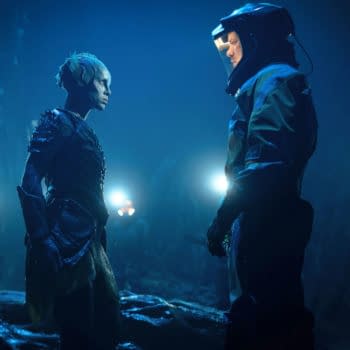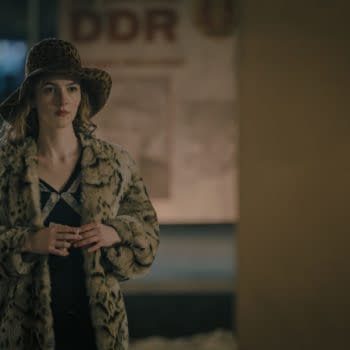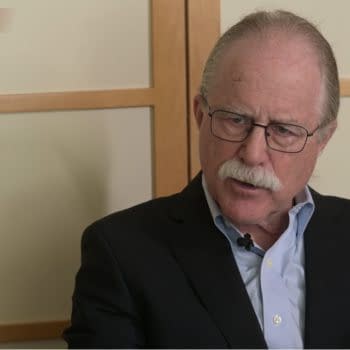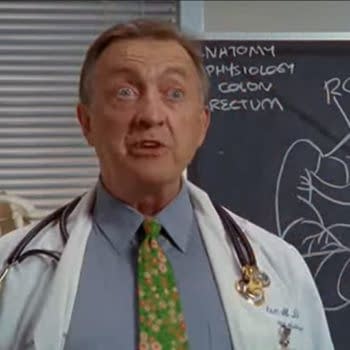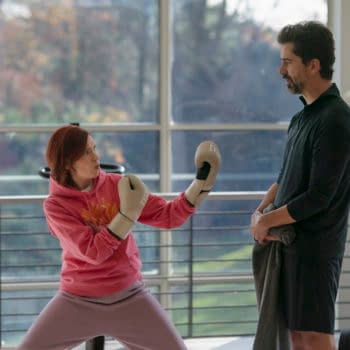Posted in: BBC, Doctor Who, TV | Tagged: bbc, christopher eccleston, david tennant, doctor who, jodie whittaker, John Hurt, peter capaldi, russell t davies
Doctor Who TV Movie Producer Reveals (Thankfully) Rejected Series Idea
The 1996 Doctor Who TV movie was not good. The script was a mess, a hodge-podge of campy tropes and sloppy writing, redeemed only by a charismatic turn by Paul McGann as the Eighth Doctor and Eric Roberts as a gloriously camp Master. It was broadcast on Fox in the US and meant to be a pilot for a US-produced show pitched to Universal Studios. That the show was rejected ended up paving the way for Russell T. Davies' hit 2005 revival starring Christopher Eccleston and Billie Piper.
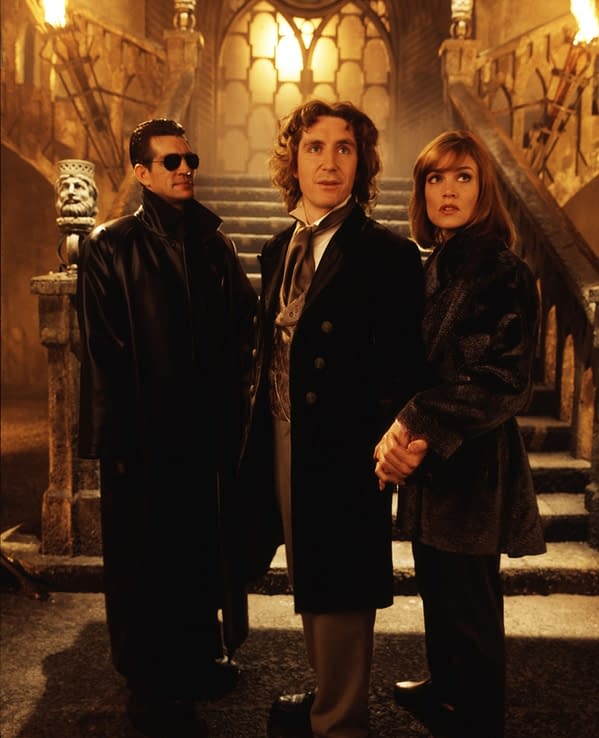
In a recent interview with the Radio Times about Doctor Who Am I, a new documentary about the TV movie, its producer Philip Segal talked about his pitch for the TV series that would have starred Paul McGann as the Eighth Doctor. He teamed up with original Max Headroom writer Peter Wagg and Richard Lewis to write a 75-page bible that was bound in leather with the Seal of Rassilon, and that was already a bad sign.
This Unmade Doctor Who TV Series is the Worst Kind of Fan Fiction
The series bible The Chronicles of Doctor Who presented a series of journal entries from the perspective of Cardinal Borusa, a Gallifreyan High Counselor who appeared in episodes of the classic show "The Deadly Assassin," "The Invasion of Time" and then became a villain in "The Five Doctors." It opened with a political struggle between the Doctor and the Master on Gallifrey, with the Doctor banished to the wastelands, searching for the Tomb of Rassilon. Eventually, the Doctor would have escaped Gallifrey by stealing a Type 40 TARDIS, one of the ideas closest to the original lore of the show. All this is the backstory for the origin of the Doctor, including the revelation that the Master and the Doctor are half-brothers and The Doctor's main objective of finding his father, Ulysses, whom he believes is alive somewhere out in the universe. Borusa becomes President of the Time Lords and is revealed to be the Master's father.
The Daleks would transform into spider-like beings of metal and organic matter. The Cybermen would be renamed as 'Cybs' and described as "the pirates of the galaxy… slash and burn marauders from the planet Mondas". They would debut in a remake of the 1982 story "Earthshock" and a rebooted story called "Tomb of the Cybs" where the Master would awaken the Cybs from their slumber. Classic Doctor Who stories like "The Daemons" and "The Sea Devils" would have been retitled and re-located, with The Daemon Within to be set in Massachusetts and The Depths set in Louisiana.
Why is all this dreadful, you might ask? Because it's the worst kind of fan fiction. "Fan-sturbation," you might say. It's too obsessed with lore and not with character or emotion. Why would a newcomer be interested in all that continuity and lore? This was the 1990s when Science Fiction and Fantasy were still seen by studio executives in both Hollywood and the UK as embarrassing. Imagine trying to pitch all the above gobbledegook to a Hollywood executive, who generally has trouble wrapping their brains around Science Fiction even now. Why should we care? The pitch's obsession with continuity and lore does not earn why we should care. It forgets that we need characters to be emotionally invested in first, then interest in lore might follow.
How Russell T. Davies Made the Right Doctor Who Revival
You might have noticed that Davies' 2005 revival of the show was the exact opposite of the above-rejected pitch. Davies is as much a hardcore fanboy of the show as the rest of them, but as an unabashed fan of TV in all its forms and genres, he understood one thing: in order for Doctor Who to be successful, it needed to appeal to everyone, not a niche of lore-obsessed fanboys. The Doctor may be the most interesting character in the room, being a mysterious alien and all, but Davies knew that the Doctor's human companion was the audience's way into the story. That was who the audience would come to identify with. Davies also knew that the show needed to appeal not just to kids but to a female audience: kids, teenagers, and young adults. Emotions are everything, not convoluted world-building with nonsense made-up names.
So the 1996 Doctor Who series died so the current version of the show could happen, giving us the Christoper Eccleston, David Tennant, Matt Smith, John Hurt, Peter Capaldi and Jodie Whittaker Doctors, the new companions, the Weeping Angels, and the seminal new stories. We should be grateful for that.






